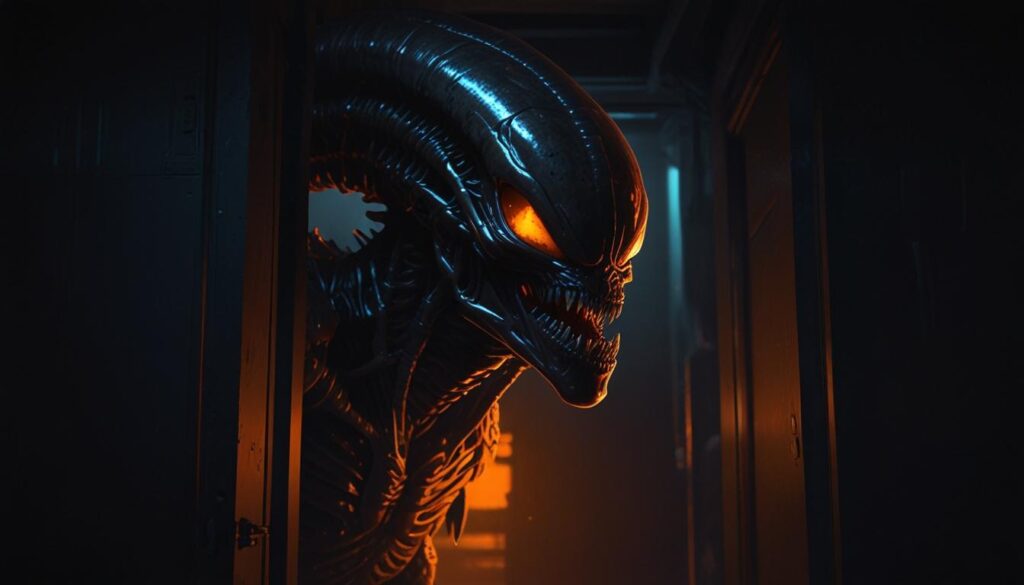The latest instalment in the ‘Alien’ series, directed by Fede Álvarez, promises a return to the visceral horror of the original films while introducing new characters and contemporary themes.
‘Alien: Romulus’ Brings Fresh Blood to a Classic Franchise
(20th Century Studios)—The latest addition to the iconic “Alien” franchise, titled “Alien: Romulus”, releases in wide theatres on 16 August, promising to rekindle the fear-inducing magic of its predecessors. Directed by Uruguayan horror specialist Fede Álvarez, known for “Evil Dead” and “Don’t Breathe”, this instalment adopts a back-to-basics approach reminiscent of the original 1979 “Alien” directed by Ridley Scott and the 1986 action-horror successor “Aliens” by James Cameron.
Set in the year 2142, 20 years after the events of the first film, “Alien: Romulus” pays homage to the core themes of the franchise while charting a new course. The film centres on a group of young, disenfranchised space miners struggling to escape the oppressive environment of the Jackson Mining Colony, overseen by the omnipresent Weyland-Yutani Corporation. Their quest for freedom leads them to a derelict space station named “The Renaissance”, where they encounter the terrifying xenomorphs.
Cailee Spaeny, who recently starred in “Priscilla” and “Civil War”, assumes the lead role as Rain, a determined heroine aiming for a new life on the farming planet Yvaga. She is joined by an ensemble cast including David Jonsson as her synthetic brother, Andy, and Archie Renaux, Isabela Merced, Spike Fearn, and Aileen Wu, portraying her friends and fellow escapees.
The screenplay, co-written by Álvarez and Rodo Sayagues, intertwines familiar themes such as artificial intelligence, human resilience, and the grotesque aspects of reproduction—a staple of the “Alien” lore. In a departure from the franchise’s deep mythology explored in “Prometheus” and “Alien: Covenant”, “Alien: Romulus” returns to the claustrophobic, visceral horror that originally captured audiences’ imaginations.
Visually, the film marries the retro-futuristic aesthetic of Scott’s and Cameron’s films with a grungy, tactile realism. Galo Olivares’ cinematography and Benjamin Wallfisch’s evocative score heighten the sense of dread and suspense. The practical effects, prominently featuring the unsettling xenomorphs designed with insights from veteran effects supervisors Shane Mahan and Alec Gillis, further immerse viewers in the film’s dark universe.
A distinctive feature of “Alien: Romulus” is its nostalgic yet innovative approach. Its storyline unfolds within the time gap between “Alien” and “Aliens”, with deliberate design choices linking the technologies and environments of the two movies. Álvarez himself acknowledged that this temporal setting allowed for the creation of sets and objects that act as precursors to those seen in “Aliens”, enhancing the film’s continuity within the franchise.
However, the movie doesn’t shy away from contemporary controversies. The inclusion of a digitally resurrected Ian Holm as the synthetic Rook, a nod to his character Ash in the original film, underscores the ethical concerns surrounding the use of posthumous digital performances. This decision raises questions about actors’ rights and the implications of artificial intelligence in future filmmaking.
Critics have noted that while “Alien: Romulus” excels in creating tension and offering thrilling action sequences, it occasionally falters with its new ideas and narrative logic. Some view its reliance on nostalgic elements as a double-edged sword, balancing deep reverence for the series’ legacy with the risk of repetitiveness. Nonetheless, standout performances from Spaeny and Jonsson add emotional depth, grounding the film’s high-stakes horror in relatable human experiences.
“Alien: Romulus” emerges as a significant entry in the long-standing franchise, demonstrating Álvarez’s vision in blending old-school practical effects with modern horror sensibilities. It strives to evoke the spine-chilling atmosphere of the earlier films while exploring the dynamic between humanity and the monstrous unknown. With the upcoming series “Alien: Earth” debuting on Hulu in 2025, the franchise continues to expand, promising new frontiers of interstellar horror.
Running at 119 minutes, “Alien: Romulus” is rated R for its intense violent content and language, making it a robust addition for fans of the genre. The film underscores the relentless survival instinct and the enduring appeal of facing off against terrifying, otherworldly foes.
“Alien: Romulus” marks a hopeful resurgence for the “Alien” franchise, marrying nostalgic fear with fresh horror elements, and stands poised to attract both devoted fans and new audiences alike.










